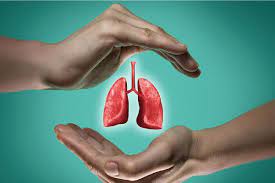
Improving Respiratory Health – Tips for Stronger Lungs
Respiratory health is a cornerstone of overall well-being, yet it’s often overlooked until issues arise. Understanding the intricacies of respiratory health can pave the way for proactive measures, ensuring you breathe easy and lead a vibrant life. Dive into this comprehensive guide to discover actionable insights on enhancing your respiratory health and safeguarding against common illnesses.

Breathing is something we often take for granted until we face respiratory difficulties. Our respiratory system, a complex network of organs and tissues responsible for the exchange of oxygen and carbon dioxide, is vital for our survival. Yet, respiratory illnesses are pervasive, affecting people of all ages and backgrounds. In this post, we’ll explore common respiratory illnesses, their causes, symptoms, and most importantly, the preventative measures you can take to ensure you continue to breathe easy.
Respiratory illnesses encompass a wide range of conditions, from mild annoyances like the common cold to more severe and chronic diseases like asthma and chronic obstructive pulmonary disease (COPD). Here are some of the most prevalent respiratory illnesses:
- Common Cold: Often caused by rhinoviruses, the common cold leads to symptoms like a runny or stuffy nose, sneezing, coughing, and a sore throat. It’s highly contagious but usually not serious.
- Influenza (Flu): Influenza is a contagious respiratory illness caused by influenza viruses. It results in symptoms such as fever, chills, muscle aches, cough, and fatigue. In severe cases, it can be life-threatening.
- Asthma: Asthma is a chronic condition characterized by inflamed airways. It can cause wheezing, shortness of breath, chest tightness, and coughing. Triggers may include allergens, pollutants, or exercise.
- Pneumonia: Pneumonia is an infection that inflames the air sacs in the lungs. Symptoms include high fever, cough with phlegm, and difficulty breathing.
- Bronchitis: Bronchitis leads to inflammation of the bronchial tubes and can result in a persistent cough, chest discomfort, and mucus production.
- COVID-19: COVID-19, short for “Coronavirus Disease 2019,” is an infectious respiratory illness caused by a novel coronavirus known as SARS-CoV-2. It was first identified in Wuhan, China, in late 2019 and has since evolved into a global pandemic. COVID-19 primarily spreads from person to person through respiratory droplets when an infected individual coughs, sneezes, talks, or breathes.
- Chronic Obstructive Pulmonary Disease (COPD): COPD is a group of progressive lung diseases, including chronic bronchitis and emphysema. It causes breathing difficulties and is often linked to smoking.
The Importance of Respiratory Health Awareness
Respiratory illnesses, such as the common cold, flu, pneumonia, asthma, and chronic obstructive pulmonary disease (COPD), can disrupt daily life and sometimes even become life-threatening. Awareness is the first step in managing these conditions. These illnesses affect millions of people worldwide. By being aware of the risks and symptoms, you can take timely action to prevent and manage them. Many respiratory illnesses are preventable. Understanding their causes empowers you to make informed choices about your lifestyle and environment. Respiratory illnesses are often more manageable when detected early. Awareness helps individuals recognize symptoms and seek medical help promptly.
Causes Of Respiratory Illnesses
- Viral Infections: Many respiratory illnesses, such as the common cold, flu, and COVID-19, are caused by viruses.
- Bacterial Infections: Bacterial infections like pneumonia can also affect the respiratory system.
- Environmental Factors: Exposure to pollutants, allergens, and irritants, such as tobacco smoke, can contribute to respiratory issues.
- Genetics: Some individuals may be genetically predisposed to conditions like asthma.
- Occupational Hazards: Certain jobs may expose individuals to respiratory irritants, increasing their risk of developing lung conditions.
Common Symptoms of Respiratory Illnesses

- Coughing
- Shortness of breath
- Chest pain or discomfort
- Wheezing
- Fever
- Fatigue
Preventive Measures for Respiratory Health
- Avoid Smoking: Smoking is a leading cause of respiratory diseases like lung cancer, chronic bronchitis, and emphysema. If you smoke, quitting is the single most important step you can take to improve your lung health.
- Ensure that your indoor environment is free from pollutants and irritants. Use air purifiers, ventilate your living spaces, and avoid exposure to secondhand smoke.
- Identify and manage allergens in your home, such as dust mites, pollen, and pet dander. Reducing allergen exposure can alleviate symptoms in those with allergies and asthma.
- Regular Exercise: Engaging in physical activity strengthens your respiratory muscles and enhances lung capacity. Aim for at least 30 minutes of moderate exercise most days of the week.
- A well-balanced diet rich in fruits, vegetables, and whole grains provides essential nutrients that support respiratory health. Antioxidant-rich foods can help protect your lungs from oxidative damage.
- Staying adequately hydrated ensures that your air passages remain moist, helping you breathe more comfortably.
- Avoiding Occupational Hazards: If your job involves exposure to respiratory irritants, use appropriate protective equipment and follow safety guidelines.
- Regular check-ups with your healthcare provider can detect respiratory issues early, allowing for timely intervention.
- Mask-wearing
- Physical distancing
- Isolation when necessary to contain the infection.
- Proper handwashing is one of the most effective ways to prevent respiratory illnesses. Wash your hands frequently, especially after being in public places or around sick individuals.
- Staying up to date on vaccinations, particularly the annual flu shot, can significantly reduce your risk of contracting respiratory infections.
- Smoking is a major risk factor for respiratory illnesses. Quitting smoking and avoiding exposure to secondhand smoke can greatly improve your lung health.
- Ensure your home is well-ventilated and free from indoor pollutants. Use air purifiers if necessary and be mindful of potential allergens.
- Maintaining a healthy lifestyle, which includes regular physical activity and a balanced diet, can strengthen your immune system and keep your respiratory system in good shape.
Respiratory health is a precious gift, and taking steps to protect it is a responsibility we all share. By raising awareness of common respiratory illnesses and implementing preventive measures, we can reduce the burden of these conditions and improve our overall well-being. Remember that a little effort today can go a long way in ensuring a healthy and happy tomorrow for your lungs and your overall health. Stay informed, take action, and breathe easy. Breathing easy is not only a matter of health but also a way to enjoy life to the fullest. So, take a deep breath, and let’s commit to a healthier respiratory future!
Disclaimer: This blog post is for informational purposes only and is not a substitute for professional medical advice or treatment. Always consult with a healthcare provider for any health concerns or questions.
















